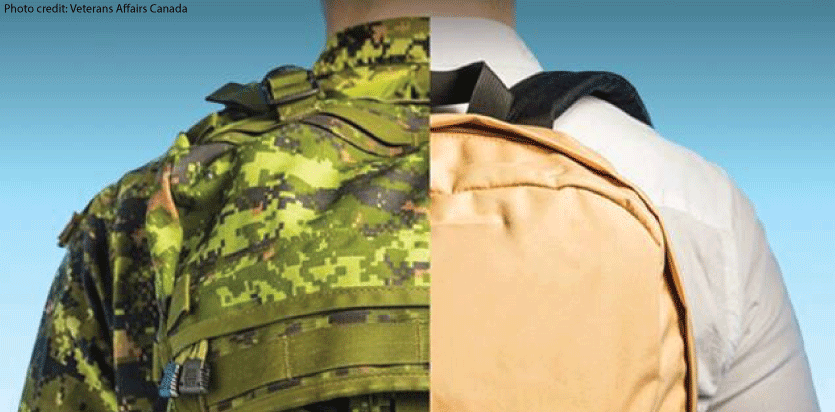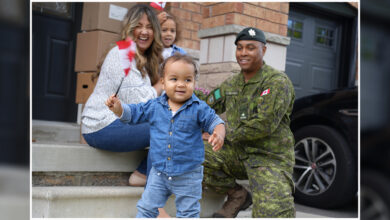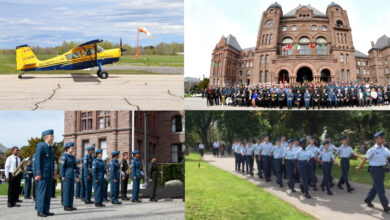Careers
Veteran Affairs Canada announces new initiatives for Veterans and family members
Veterans Affairs Canada (VAC) announced on April 1, 2018, they have enhanced and added some programs and resources available to veterans and their families.
Transitioning into life following service can provide new opportunities and challenges for veterans and their families. For that reason, the Government of Canada has created programs and resources to help smooth the transition and focus on the veteran’s well-being.
“All of these benefits have the intention to position a veteran for success as he or she re-establishes into a civilian society, giving them a new purpose. That’s really the overarching objective here, to facilitate that success as they translate to their new civilian world and the new civilian world of work,” said Paul Thomson, VAC representative.
The new programs and service Theses include:
1. Education & Training Benefit
A veteran who has been released after 2006 and served at least six years is eligible for funding to go back to school. If they’ve served six to 12 years, they’re eligible to receive up to $40,000 and up to $80,000 if they’ve served more than 12 years.
“There are opportunities for long programs, like university programs and post-grad program, but there are also opportunities for short courses. Within those parameters, you can be granted up to $5,000 for a one-off course if you will. Like a first aid course for example,” said Thomson.
After tuition has been paid, the veteran is free to choose how the remaining funds will be spent. Veterans will also have access to a career counsellor through this benefit.
This benefit is open to veterans only, and there is a time limit on this service. The veteran has up to 10 years from their release date.
2. Career Transition Services Program
Through this program, veterans will be provided with support throughout their entire transitional period. Veterans will be supported with their job search, placement, career counselling, career coaching, and resume and interview preparation.
The program provides veterans and their spouse with a qualified counsellor who understands the transition process. The best part is, there’s no time limit as to when a veteran can access the service. They can get assistance or advice anytime they’re ready to do so.
Thomson said the old program wasn’t working, so it’s been completely revamped to be more user-friendly.
“We are already seeing the number of applications and approvals are almost to 300 already. Early indications are that it’s working really well and there’s significant take on the benefit,” he added.
3. Veteran & Family Well-Being Fund
VAC is investing $12 million over the next four years for research in advanced technology, innovative projects and new initiatives that will continue to help veterans and their families.
From time to time, VAC will put out a call for proposals, and anyone can fill out an application to fund their project that benefits veterans and their families.
“We would get approached by a lot of organizations, public, private and otherwise, that had innovative ideas and wanted to do some research to improve the lives of veterans and their families. We had no funding mechanism for that,” said Thomson.
Thomson added, they are allowed to allocate up to $3 million annually to fund these ideas and projects.
4. Caregiver Recognition Benefit
There are three big changes being made to this benefit to further help veterans. First, a $1,000 tax-free payment will be made every month; Second, the benefit will be paid directly to the caregiver, eliminating an extra step; Third, there’s no need to renew annually anymore. Veterans fill out a one-time application.
“It recognizes that we call them the ‘informal caregiver,’ plays a really important role in providing care to a veteran,” said Thomason. “That informal caregiver can be a spouse, a child, or anyone that provides that care to a veteran.”
5. Veterans Emergency Fund
The emergency fund provides veterans with short-term financial whose well-being was at risk due to an urgent or unexpected situation. The fund will provide up to $2,500 as a short-term fix for an emergency, while the veteran works alongside VAC to come up with a long-term solution.
VAC promises the application process is quick and easy. A veteran could have their emergency funding within 24 to 48 hours.
6. Centre of Excellence on PTSD and other related mental health conditions
Together, Veterans Affairs Canada and the Canadian Armed Forces, have created an online hub for active members and veterans to access when they are seeking further information on PTSD and other mental health-related issues.
“We want it to be the research hub, the virtual hub of all mental health research going forward,” said Thomson.
The Centre of Excellence hasn’t been launched as of right now, but Thomson said to keep an eye out because it will soon be coming to a computer near you.
To access your benefits
For more information on the changes made to these benefits and how to access your own benefits, VAC encourages you to visit their website, http://www.veterans.gc.ca, and sign up for a ‘My VAC Account.’ Thomson said for faster results, it is best to apply for these benefits online.











